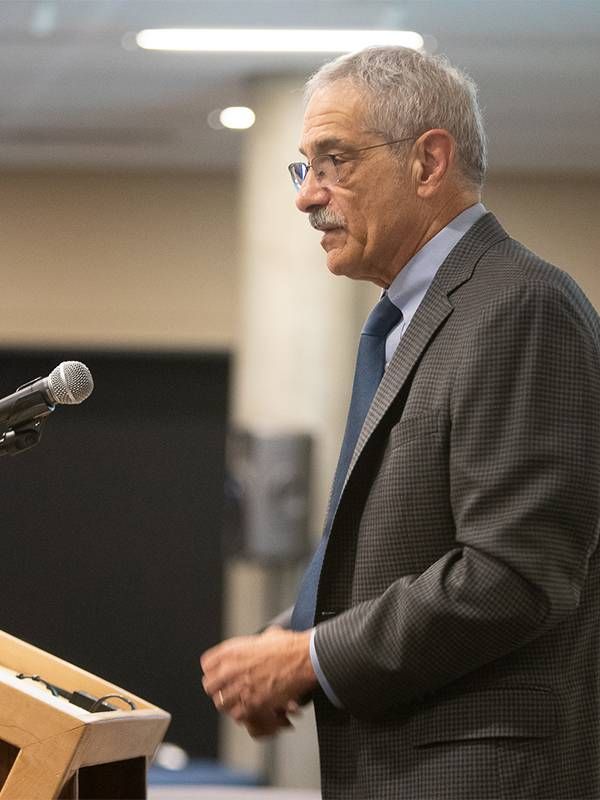What's Behind the Older Worker Paradox?
Although employers give them lower performance ratings, longer tenure means better business results
Here's a strange paradox regarding older workers: On the one hand, they're 14% less likely to receive the highest annual performance ratings, according to Mercer's Workforce Sciences Institute. But, those analysts found, business units' financial and operational performance rise with increased tenure of their workers.
What gives?

I posed that question to Rick Guzzo, the co-founder of the Workforce Sciences Institute who presented the findings at the Age-Inclusive Management Strategies (AIMS) Colorado conference I recently attended in Denver. (Full disclosure: I appeared on "The New World of Work and Unretirement" panel there, along with Yahoo Finance senior columnist Kerry Hannon.)
Ageism in the Workplace
Guzzo said there were two possible explanations why managers would give older workers lower performance ratings even though longer tenures led to better results.
"One is that because performance ratings are subjective, that opens the door to age-related bias. So, that could depress them a bit," said Guzzo.
Some 78% of people aged 40 to 65 that AARP surveyed in 2021 said they'd either seen or experienced ageism in the workplace, up from 61% before the pandemic. And in recent AARP research, 62% of people 55+ surveyed who were unemployed during the pandemic's peak and are looking for work said they were experiencing age discrimination during their job search.
Some 78% of people aged 40 to 65 that AARP surveyed in 2021 said they'd either seen or experienced ageism in the workplace, up from 61% before the pandemic.
Gamesmanship May Be Going On at Employers
Another explanation for the older-worker performance vs. results paradox, said Guzzo, is gamesmanship or horse trading.
"The notion that if you've got a twenty-year employee, you might be able to give them a four [rating] instead of a five, and you can give that 'five' to the two-year employee who you think is an up-and-comer," he noted.
Employers know that employees who have been with them for a long time tend to stay, added Guzzo. "So, their likelihood of walking out the door is probably less affected by getting a somewhat disappointing rating," he said.
The Latest Trend: 'Quiet Firing'
A lower performance rating could be what conference speaker Joe Barela, executive director of Colorado's Department of Labor & Employment, called "quiet firing."
That's the boss' response to the quiet quitting trend you've likely heard about. Barela explained quiet firing this way: "If I ignore this worker, they'll leave."
We may well see that kind of thing happening more frequently in coming months. Reason? The hot labor market has cooled, and employers are starting to adopt hiring freezes and layoffs and pull back on hiring plans.
More than 50% of CEOs are considering cutting jobs over the next six months, a recent KPMG report found.
And, as Chris Farrell recently wrote on MarketWatch, "if the labor market weakens, older workers will be among the hardest hit."
Noted Guzzo: "There's probably a risk of employers going back to the old world view that the older employee needs to go."
That's because older workers — 23% of the U.S. workforce is age 55 or older — tend to earn more than younger ones, making them appear costlier to employers.
What's Wrong with Employers' Math
But, Guzzo said, employers aren't doing the proper math.
"Too often, employers don't know the value side of the tenured worker, who tends to be the older employee," he said. "They only know the cost side."
"Older workers bring wisdom and value to the workplace."
Tenure, Guzzo explained, "is predicated on the belief that there is unique knowledge as well as unique insights, social networks and proprietary processes that come with being in a place for a long time."
An April 2022 paper by Guzzo and two of his Mercer colleagues in the Work, Aging and Retirement journal, said: "We believe it is time to ratchet up the prominence of research results showing that age has no consistently detrimental impact on business performance."
Brian Kaskie, a University of Iowa College of Public Health professor who ran the AIMS Colorado conference with Transamerica Institute CEO and President Catherine Collinson, said: "Older workers bring wisdom and value to the workplace."
Changing Employment Practices for Older Workers
Some employers are realizing this, revising their hiring and employment practices as a result.

For instance, Denver Art Museum Senior Director of Talent & Culture Resources Laura Pratt told conference attendees that she and her colleagues changed the museum's job descriptions after noticing they "had lots of barriers" for older applicants.
"Why does an administrative assistant need to lift twenty-five pounds?" she asked, referring to one posting. "They don't. But it's been there for years in the job description. We removed it."
Kaskie said tweaking job descriptions is an example of the "simple stuff" employers can do to "demonstrate to applicants that you value experienced employees."
Yet, said diversity consultant Lisa Balser at the recent Age Equity Alliance Age Equity 2022 Fall Forum, some employers still use "coded ageism" in their job postings and interviews.
"Overqualified" means too old; a job description looking for a "digital native" or someone who's "energetic" means the employer wants someone young, she explained.
How More Flexible Work Policies Could Help
A more difficult change to better serve older workers, Kaskie noted, is allowing for more flexible positions such as part-time, seasonal or remote opportunities.
Guzzo said flexibility — in hours and location — is exactly what many older workers crave.
"Flexible practices that keep high-tenure employees at work will pay off for employers," noted Guzzo, who works for Mercer half-time.
He warned employers not to go too far with flexibility and turn their entire workforces into gig or contract workers, however.
"There's a reason that organizations exist — they have shared knowledge and people in them transact information and expertise with each other," said Guzzo. "If you just have a bunch of contractors popping in and out or doing a task for a limited duration and then they're gone, there's no reason to have an organization."
How Age-Friendly Are Employers?
The most difficult type of HR policy change that would be beneficial to older workers, Kaskie told employers at the AIMS Colorado conference, is to "make your benefit structure more appealing to retain aging employees."
Only 59% of boomers surveyed by Transamerica Center for Retirement Studies said their employers were "age-friendly." By contrast, 71% of Gen Zers did.
"Designing policies and programs that address the needs of older workers can help people stay employed longer and help employers, but too few employers have adopted age-inclusive management strategies," said Kaskie.
His prediction to employers: "Older workers are going to just keep showing up, whether you're ready or not."


